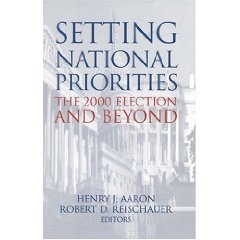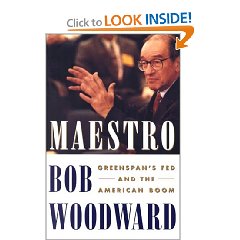Especially gripping for anyone who anticipates a future in which Dick Cheney and Colin Powell have something to say about our national security, is the authors' analysis of their strategic decisions following the Cold War. Both Cheney and Powell get very high marks for understanding that global strength is a pre-requisite for stability and security. The Powell vision for a Base Force with Atlantic, Pacific, Strategic, and Contingency force elements is categorized as brilliant. Powell does, however, get very low marks for being consistently unwilling to use force to impose order in the absence of clear objectives-the authors are very clear in calling the Weinberger Doctrine (setting conditions under which force may be used) completely out of date and at odds with today's needs. Both President Bush and Chairman Powell are severely castigated for having ended the Gulf War too soon and without a decisive result-the author's compare this to the similarly indecisive outcome of World War I, an outcome that left the aggressors strong enough to come back and fight another day.
The authors then go on to systematically review a series of major foreign policy and defense failures in the Clinton administration, an Administration characterized by a consistent failure to understand and address the mismatch between wandering and vacillating foreign policies and attendant commitments, and the real-world capabilities of a declining military force. Especially dangerous, in the authors' view, was the Bottom Up Review approach that abandoned the Cheney-Powell appreciation for maintaining sufficient force to deter two regional surprise attacks (Russia and Iraq on one side, China and North Korea on the other), and instead adopted the premise that 6 months warning would be available, that reconstitution of both the force and its industrial base was possible, and that forces could be justified only in terms of existing threats, most of them from non-state actors. Bosnia, Somalia, Haiti, Iraq inspections, North Korea inspections, these are all reviewed and all are found to have left America with a legacy of half measures. “By trying to ignore the problem, to leave it to others, whether the UN or NATO, by declaring it to be of no vital interest to the United States, by refusing to use any force once involved and then to use adequate force once committed, they [Bush Sr. and Clinton] found themselves making the very mistakes that brought defeat and disaster in Vietnam, the fear of which had played so great a role, first in their failure to act and then in their inadequate response.”
In their conclusion, the authors find that the next Administration will assume responsibility at a time when the rest of the world has learned, from the past eight years, that America is not willing to summon the forces to defeat aggression; that developing weapons of mass destruction is the fastest means to elicit billion dollar bribes from America; that ethnic cleansing and politically driven mass starvation will not inspire intervention by America. “The most likely American response will be neglect, at first, followed by some attempt at negotiation. If, at last, driven to action, the Americans attack, it will be from the air, employing limited rules of engagement, and it will not destroy the aggressor. Ground forces will almost certainly not be used until the aggressor himself invites them in as part of a negotiation that gives him [the aggressor] most of what he wants. Above all, he should be sure to develop weapons of mass destruction. Even the hint of such a program in a threatening country will bring high-level American officials on top-secret missions to bribe its leaders to abandon the program. They will probably be able to keep the bribe and to pursue the programs they like, as well. These are the lessons America has given the world in the past eight years…”
The book closes by concluding that the strategic pause is gone and it is almost too late. Forces have declined severely (one can only lament the ill-considered Navy program for decommissioning destroyers and frigates that, once decommissioned, are almost impossible to resurrect), coalitions and alliances are in disarray, and non-state actors have learned how to play on the naiveté of the U.S. Government. America's responsibilities for global stability and security are “inescapable”, and the next President must make the necessary commitments and be materially and morally ready to meet them.










